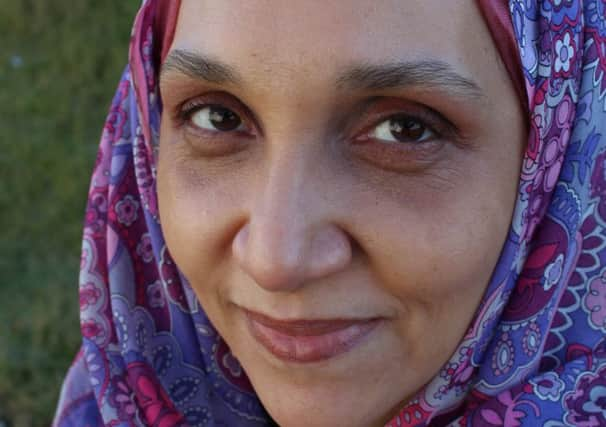Book review: Bird Summons, by Leila Aboulela


Essentially, it’s a realistic novel about personal relationships, the demands that people make of themselves and the different ones that others make of them, religious faith and the obligations this imposes. The faith in this novel is Islam, but it might equally well be Christianity or indeed Humanism or political commitment.
Salma, Moni and Iman are members of the Arabic Speaking Muslim Women’s Group. They live in Dundee. Salma is the group’s
Advertisement
Hide AdAdvertisement
Hide Adchair or organiser, a married woman and mother of four. Her husband David is a Scot converted to Islam. Egyptian by birth, she worries that her children are becoming more and more British, and so are moving away from her. She has recently made email contact with a friend of her youth who had hoped to marry her.
Moni, like Salam, is forty-ish. Sudanese by birth, she used to work in a bank, but has given this up to care for her only child, Adam, who suffers from severe cerebral palsy; he has become her life. Her husband, who is so ashamed of having such a son that he can hardly bring himself to speak his name, is working in Saudi Arabia. She refuses to join him there because she fears Adam would not receive the quality of medical care he needs.
Iman, a Syrian, is much younger, but already twice divorced and married again. She is very beautiful. Her husband adores her, but his family will disapprove when they learn of the marriage. She relies on Salma who in turn cares for her in a motherly fashion.
The lives of all three women are thoroughly imagined, and ring convincingly true. Their road trip is to the Highlands, its purpose to visit the grave of Lady Evelyn Cobbold. The daughter of the Earl of Dunmore, she spent her childhood in Egypt and North Africa, looked after by Muslim nannies and teachers, and came to think of herself as a Muslim, though there does not seem to have been any moment of formal conversion. In her sixties, she made the pilgrimage to Mecca, apparently the first European woman to enter what she called “the sacred cities.” By her instructions her Highland grave faces south-east – the direction of Mecca from Wester Ross. The tombstone has recently been defaced, which gives the other members of the Arabic Speaking Muslim Women’s Group an excuse to drop out of the trip. Like, I would guess, a good many readers of this novel, I knew nothing of Lady Evelyn and am pleased and interested to learn about her.
In setting the three women off on their journey, Aboulela has embarked on one of the classic forms of the novel: one which traces a shift in understanding, a moral and intellectual education. By putting Slama, Moni and Iman into a situation where they are invited, insensibly, to consider how they are living, to assess their strengths and weaknesses and to determine how they should lead their lives from
now on, Aboulela is doing much
the same thing as Jane Austen did when she brought her heroines to the point of examining their feelings honestly and so realising who they should marry and on what terms. Aboulela does this very well, and always (which is just as important) interestingly. Her three women will be changed by their experiences, emerging stronger and wiser, liberated from self-pity, and reconciled to the reality of their circumstances. Whether the hoopoe’s role in this delights you or seems a piece of tiresome whimsy is a matter of taste. Even if you find the hoopoe a piece of self-indulgence on the part of the author, you can skip these passages, and you will still have a very good novel. - Allan Massie
Bird Summons, by Leila Aboulela, Weidenfeld & Nicolson, 290pp, £16.99